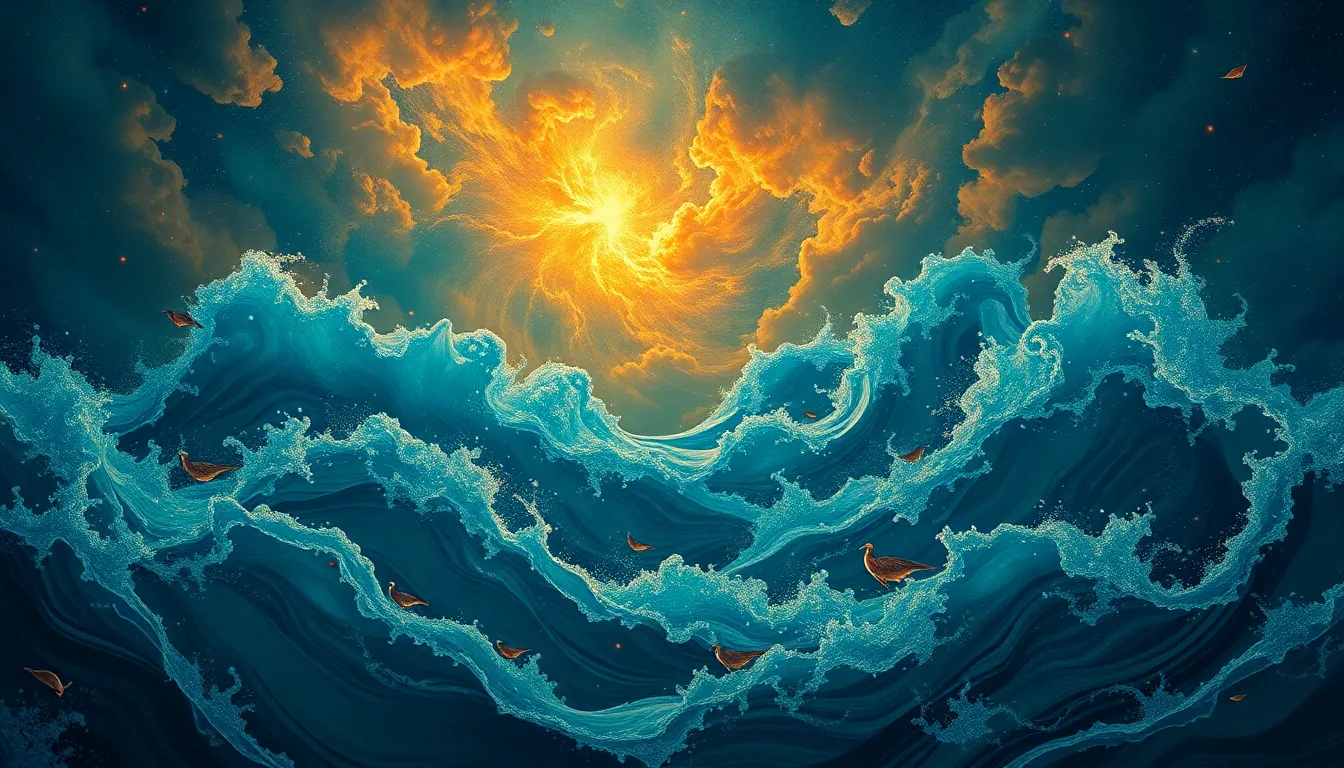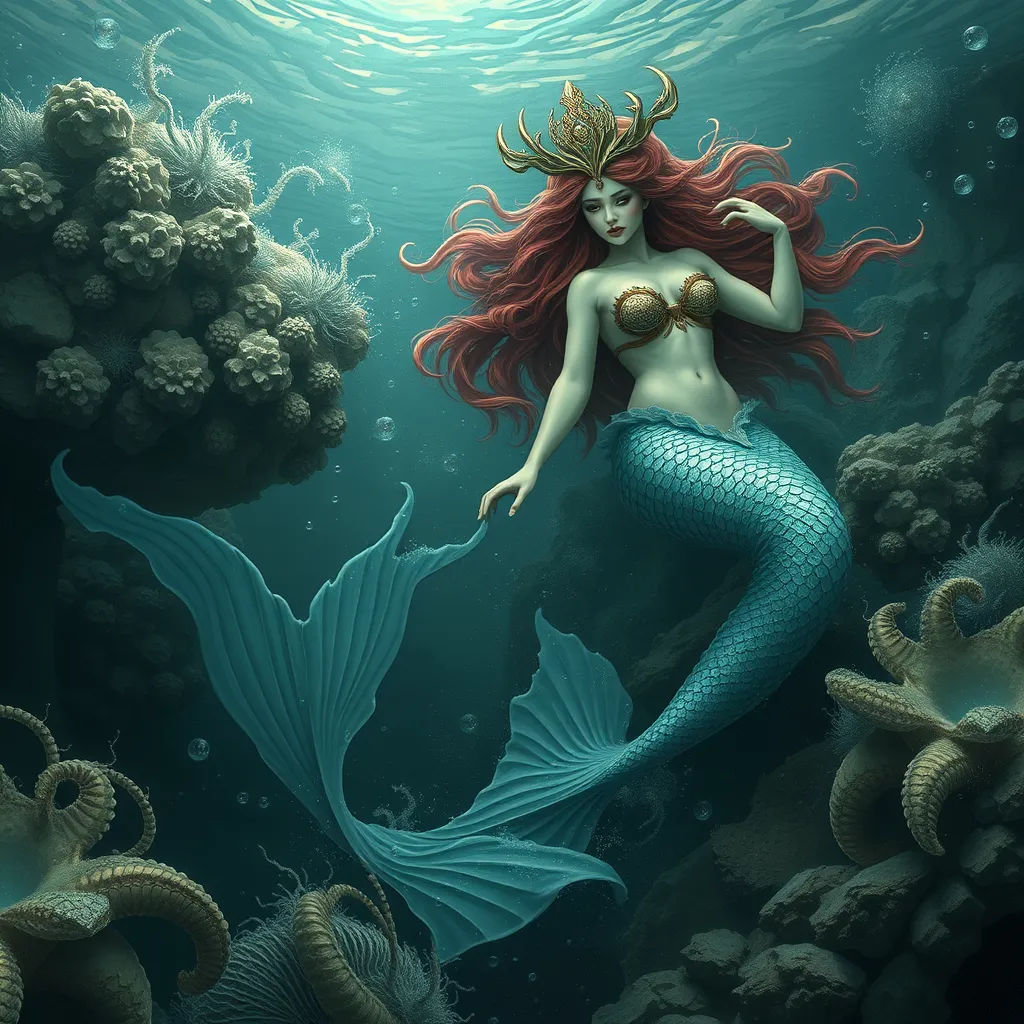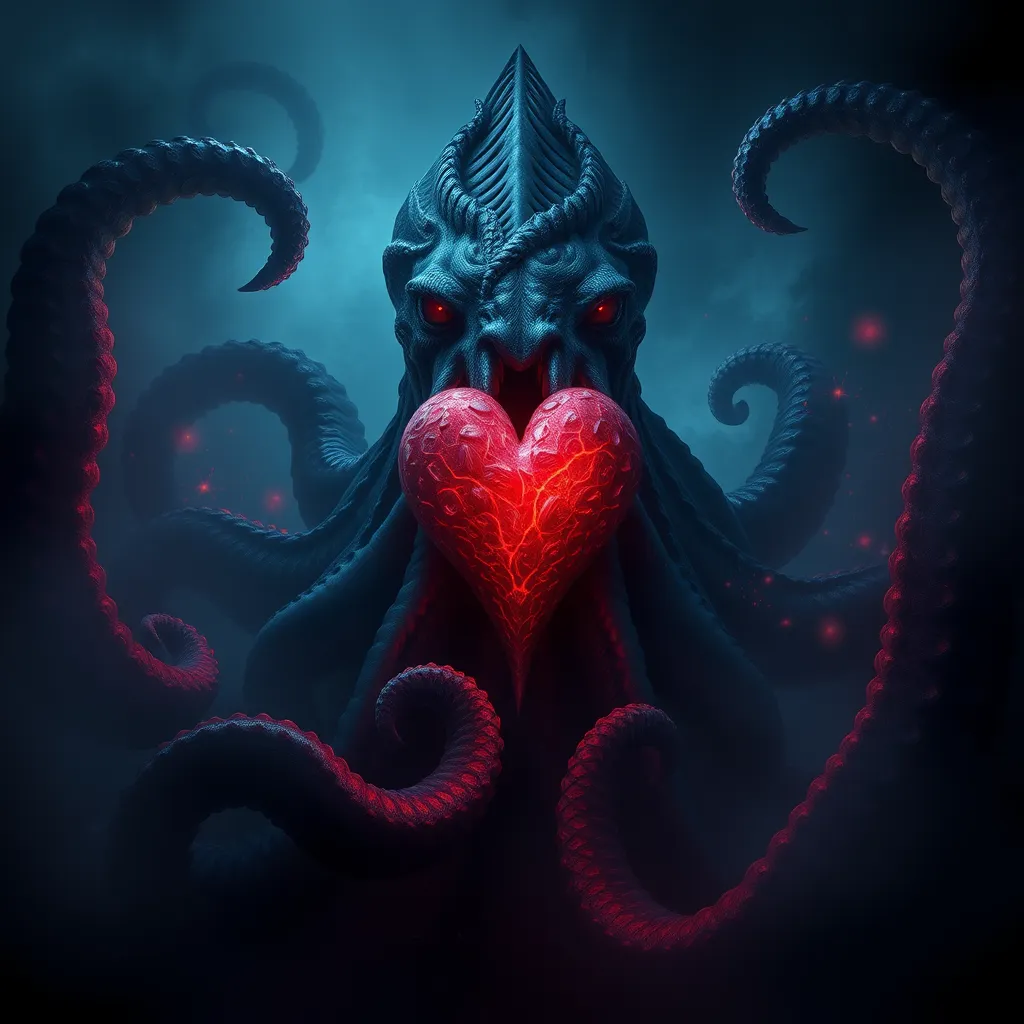The Mythical Sea: Exploring the Intertwined Relationship Between Mythology and the Ocean
I. Introduction
The ocean has always held a significant place in human culture, acting as a source of sustenance, mystery, and inspiration. From the dawn of civilization, the vast bodies of water have been the backdrop for countless stories, fears, and dreams. It is not merely a physical entity but a symbol of the unknown, a place where reality meets fantasy.
Mythology, on the other hand, serves as a lens through which cultures interpret the world around them, often weaving natural phenomena into narratives that explain human existence and the forces of nature. The connection between mythology and the sea is profound, as many ancient tales revolve around oceanic themes, creatures, and deities. This article aims to delve into this intricate relationship, exploring how myths about the ocean have shaped human culture and beliefs over time.
II. Historical Perspectives on the Ocean in Mythology
A. Early civilizations and their ocean myths
From the earliest known societies, the ocean has been a source of inspiration and reverence. Many ancient civilizations created myths to explain the mysterious and often treacherous nature of the sea. For instance:
- The Mesopotamians worshipped the goddess Tiamat, who represented the saltwater ocean and chaos.
- The Greeks spoke of Oceanus, a titan personifying the ocean, who encircled the world.
- In Polynesia, the ocean was central to creation myths, often viewed as the source of life.
B. The role of the sea in ancient cultures
The ocean was not just a backdrop in these cultures but played a crucial role in shaping societal values and beliefs. In ancient Greece, the sea was both a pathway for trade and a barrier against foreign invaders. The reverence for the sea influenced various aspects of daily life, from economy to religion.
In Mesopotamia, the stories of gods battling sea monsters reflected the chaos and unpredictability of the ocean, symbolizing the struggle for order in the universe.
C. How these myths shaped societal values and beliefs
These ocean myths did more than entertain; they instilled values such as bravery, respect for nature, and the importance of harmony with one’s environment. They warned of the dangers of hubris and the consequences of disrespecting the sea, reinforcing a cultural understanding of balance.
III. Prominent Mythical Sea Creatures
A. Overview of legendary sea creatures
Throughout history, numerous legendary sea creatures have captured human imagination. Notable examples include:
- Mermaids: Often depicted as beautiful women with fish tails, mermaids symbolize allure and danger.
- Krakens: Giant sea monsters said to dwell off the coasts of Norway and Greenland, representing the terror of the unknown.
- Sea Serpents: Mythical creatures that appear in various cultures, often symbolizing the chaos of the ocean.
B. Cultural significance and symbolism of these creatures
These sea creatures often embody deeper meanings. Mermaids, for example, highlight the duality of beauty and peril. The kraken serves as a metaphor for nature’s wrath, while sea serpents often represent the mysteries lurking beneath the waves.
C. Case studies of specific myths
The Sirens in Greek mythology are a compelling case study. These half-bird, half-woman creatures lured sailors to their doom with enchanting songs. The myth of the Sirens illustrates not only the dangers of temptation but also the consequences of ignoring warnings from nature.
IV. The Ocean as a Source of Inspiration for Deities
A. Overview of ocean deities across various cultures
Numerous cultures have personified the ocean through deities, reflecting humanity’s reverence and fear of the sea. Notable ocean deities include:
- Poseidon: The Greek god of the sea, earthquakes, and horses.
- Neptune: The Roman counterpart of Poseidon, symbolizing power and fertility.
- Yemaya: The Yoruba goddess of the sea, representing motherhood and fertility.
B. The attributes and domains of these deities
These deities often embody the characteristics of the ocean itself—both nurturing and destructive. For instance, Poseidon is revered for his ability to calm the seas but also feared for his capability to unleash storms.
C. How the ocean’s characteristics influence the portrayal of these gods and goddesses
The portrayal of these deities often reflects the ocean’s duality. They are seen as protectors of sailors and fishermen while also being vengeful when disrespected. Their stories remind humanity of the ocean’s power and unpredictability.
V. Myths of Creation and Destruction
A. The ocean in creation myths
Many creation myths feature the ocean as a primordial element. In various cultures, the ocean is viewed as the source of life, often described as the first entity from which all creation emerged. For example:
- In Hinduism, the cosmic ocean is where the god Vishnu rests before creating the world.
- In the Genesis creation story, waters existed before God created the land.
B. Destruction and chaos associated with the sea in mythology
Conversely, the ocean is also depicted as a source of destruction. Myths often tell of great floods and storms that cleanse or punish humanity, such as:
- The biblical flood in Noah’s Ark.
- The Mesopotamian myth of Gilgamesh and the flood.
C. The duality of the ocean as a life-giving and destructive force
This duality reflects humanity’s complex relationship with nature—while the ocean can provide abundance, it can also unleash chaos and despair, reminding us of our vulnerability.
VI. Folklore and Legends: The Ocean’s Influence on Human Experience
A. Exploration of maritime folklore and local legends
Maritime folklore is rich with local legends that often reflect the relationship between communities and the sea. Tales of ghost ships, lost treasures, and vengeful spirits abound in coastal cultures, illustrating a deep-seated connection to the waters.
B. The impact of oceanic myths on sailors and explorers
For sailors and explorers, these myths served as cautionary tales, guiding their behavior and decisions at sea. Stories of the Bermuda Triangle or the Flying Dutchman instilled both fear and respect for the ocean’s vastness.
C. The psychological and cultural effects of these stories on communities
The ocean’s myths have shaped community identities and cultural practices. They foster a sense of belonging and shared history, as people pass down these stories through generations, reinforcing cultural values and traditions.
VII. The Evolution of Ocean Myths in Modern Culture
A. How ancient myths continue to influence contemporary literature and film
Ancient ocean myths have permeated modern literature and film, inspiring works that explore themes of adventure, danger, and the unknown. From classics like Jules Verne’s “Twenty Thousand Leagues Under the Sea” to contemporary films like “Pirates of the Caribbean,” these stories continue to resonate with audiences.
B. The resurgence of interest in ocean mythology in popular culture
Modern adaptations and retellings of ocean myths reflect a growing interest in understanding humanity’s relationship with the sea. The rise of fantasy genres often incorporates elements of oceanic folklore, highlighting the timelessness of these narratives.
C. The role of the ocean in environmental narratives and modern folklore
Today, the ocean stands at the forefront of environmental discussions, with myths evolving to reflect contemporary concerns about climate change and conservation. Oceanic narratives now serve as powerful tools for raising awareness and inspiring action to protect marine ecosystems.
VIII. Conclusion
The relationship between mythology and the ocean is a testament to the enduring power of storytelling. Through tales of deities, creatures, and cosmic events, these myths illustrate humanity’s complex connection to the sea—both as a source of life and a force of destruction.
In preserving oceanic myths, we not only honor our cultural heritage but also foster a greater awareness of



